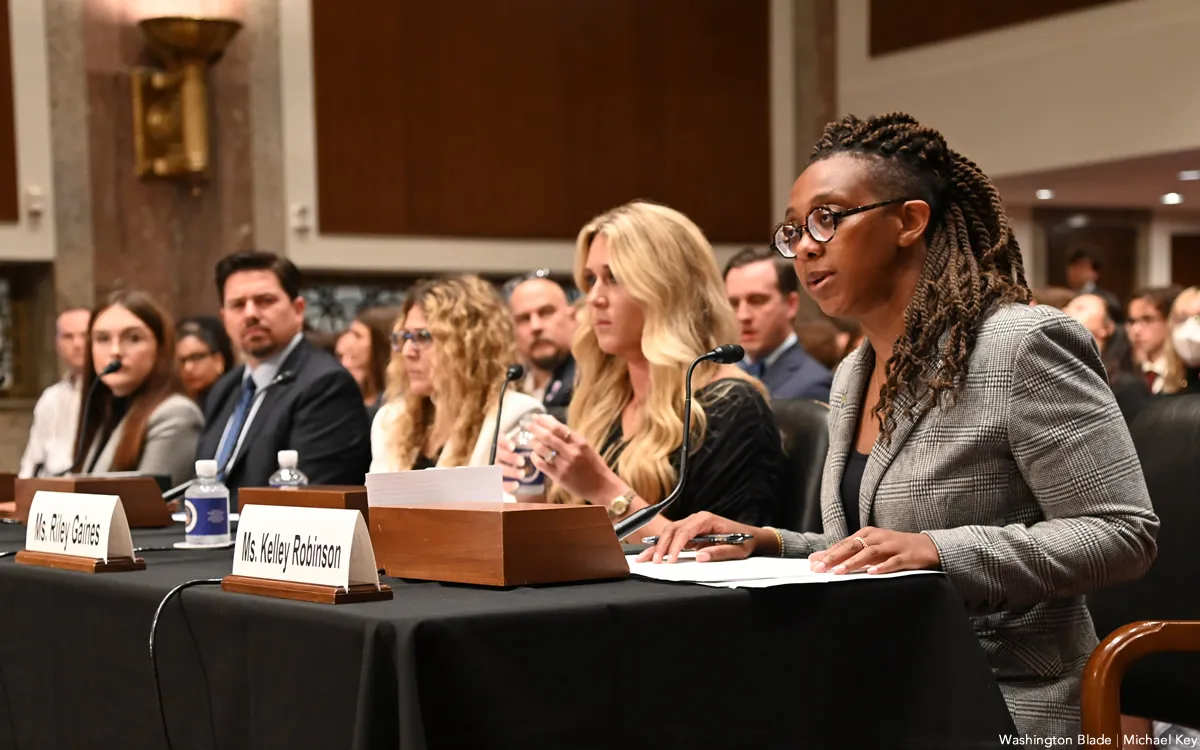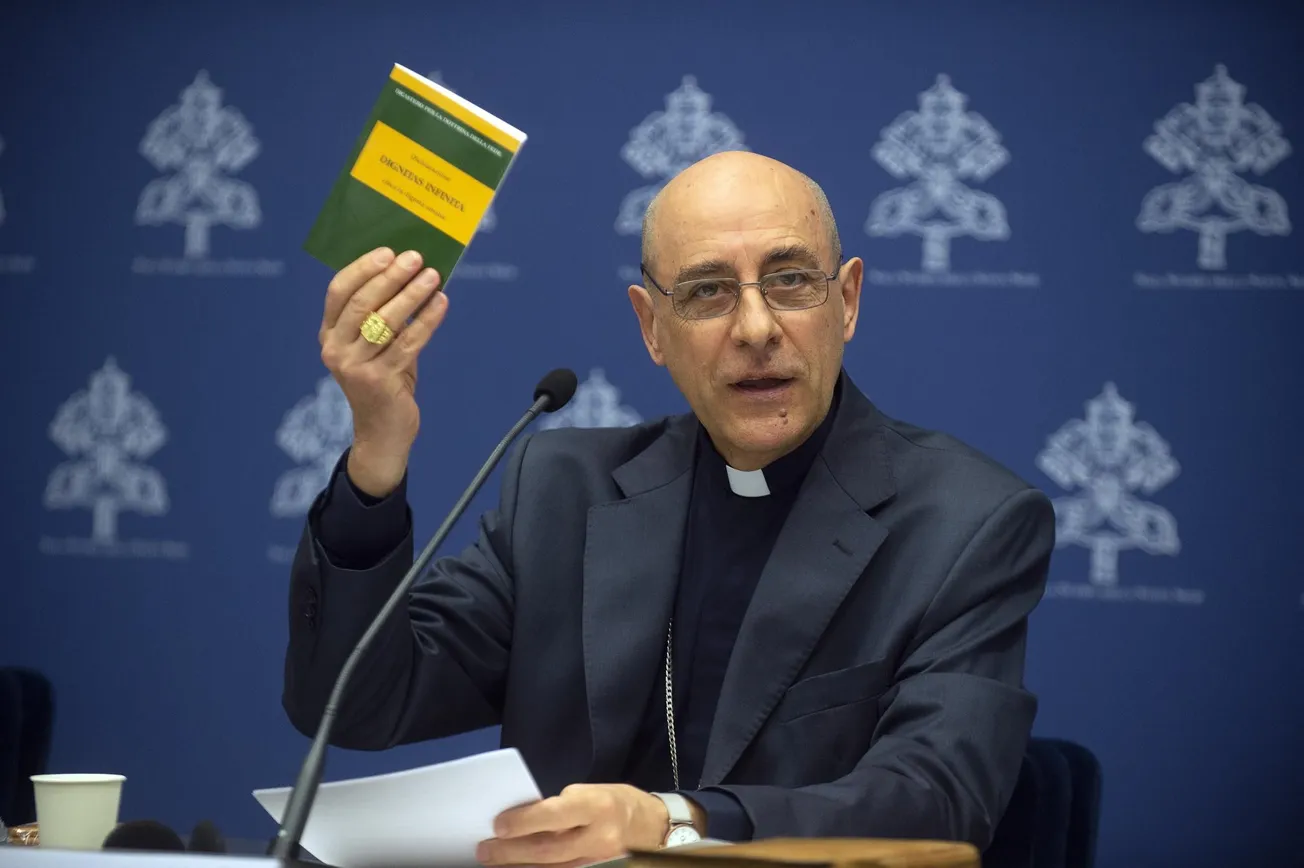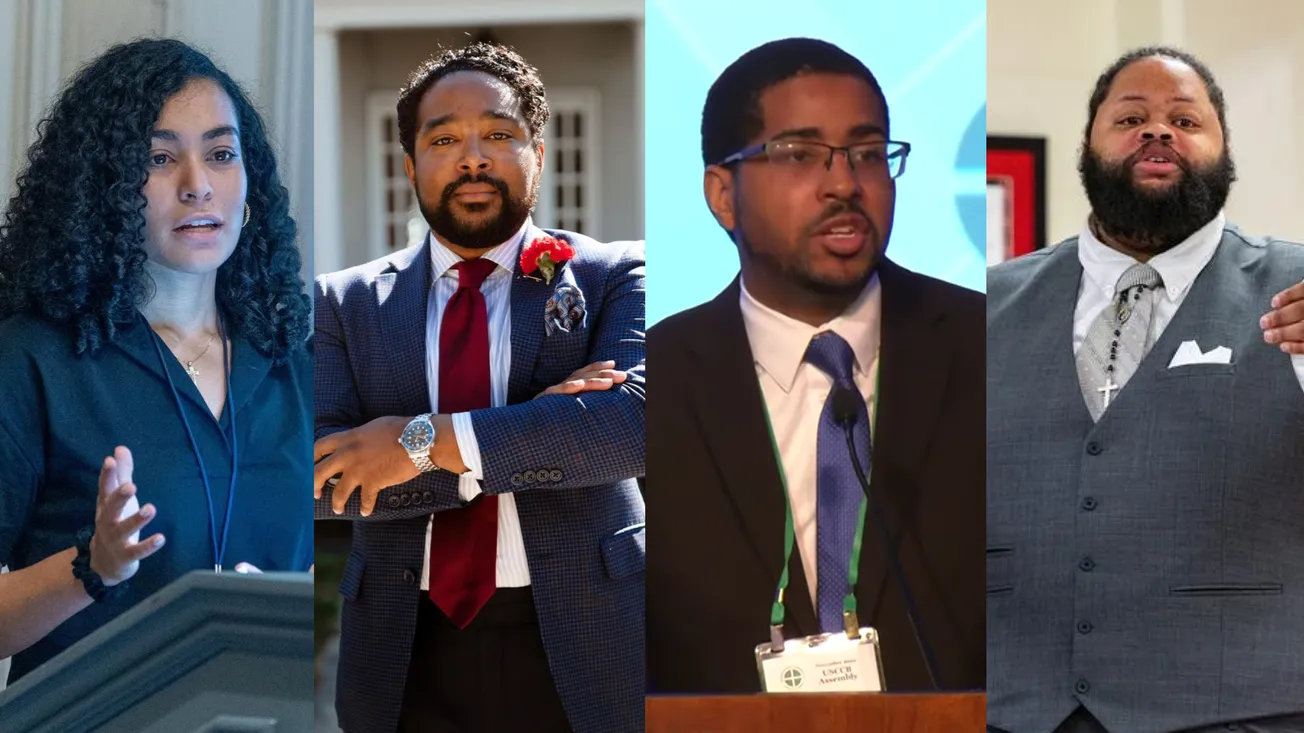Shortly after the 118th Congress reintroduced the Equality Act last week in Washington, the Senate Judiciary Committee heard testimony from LGBTQ+ individuals and activists supporting the landmark bill.
The fraught legislation—introduced in the House and Senate on June 21, some four months after President Joe Biden voiced support for the bill during his State of the Union address—has failed in several previous iterations. If passed, it would amend the Civil Rights Act of 1964 to include sex, sexual orientation, and gender identity as classes federally protected against discrimination.
“It has been nearly a decade since this bill was first introduced. In that time, LGBTQ+ members of the military have served openly, marriage equality has been codified in federal law, and more LGBTQ+ Members of Congress have been elected than ever before,” said Human Rights Campaign president Kelley Robinson—a married lesbian and Black Catholic—during a three-hour hearing on Wednesday.
“This is fundamentally a civil rights issue. The Equality Act has to be signed into law to give us all equal access to that American dream,” she added in response to a question from Senator Cory Booker of New Jersey, who is co-leading the bill’s sponsorship in the U.S. Senate.
Robinson also made note of various anti-LGBTQ+ laws passed in recent months by Republicans in local legislatures across the country, including several that were later blocked by federal judges. She also emphasized that while the “horrific” rhetoric of conservative lawmakers today smacks of bigoted positions of yesteryear on issues like HIV/AIDS and marriage equality, she believes change is possible by “opening our hearts and minds.”
Equal rights means rights for all. Without discrimination, without exception. pic.twitter.com/x4ByOQD487
— Human Rights Campaign (@HRC) June 21, 2023
Originally borne from similar bills introduced in the 1970s, the modern Equality Act legislation has faced unyielding opposition in Congress, where it has been put forward in each session since 2015. It has reached a vote only twice, in 2019 in 2021, when it passed with thinly bipartisan support before dying in the Senate.
During its hearings, the Senate Judiciary Committee received testimony from various opponents of the bill, including Republican Reps. Marsha Blackburn of Tennessee and Josh Hawley of Missouri. Also testifying was competitive swimmer-turned-activist Riley Gaines, who spoke of “anger and frustration” (as well as physical injuries) among biologically female athletes due to competing against transgender women.
“This is unacceptable and the integrity of women's sports is lost. It's unfair, it's discriminatory, and it must stop,” she said.
While recent public opinion polls have shown that most Americans oppose transgender rights in women’s sports, a similar percentage said in 2019 that they did not know LGBTQ+ persons lack federal protections under law. Progressive legislators, activist groups, and various prominent LGBTQ+ individuals have championed the Equality Act as a way to move away from both misogyny and discrimination against individuals who are not heterosexual or cisgender.
Both of Congress’ Afro-Latino Catholics—Reps. Adriano Espaillat and Alexandria Ocasio Cortez of New York—are cosponsors of the 2023 Equality Act, with Espaillat writing on social media that “it’s time to enshrine these protections into law.”
Both Espaillat and Ocasio-Cortez are also members of the Congressional LGBTQ+ Equality Caucus, whose co-chair Rep. Mark Takano of California introduced the bill this year.
As a proud member of the @EqualityCaucus, I applaud today's reintroduction of the Equality Act. 🏳️🌈
— Adriano Espaillat (@RepEspaillat) June 21, 2023
This critical legislation will ensure explicit nondiscrimination protections for LGBTQI+ people.
It's time to enshrine these protections into law! pic.twitter.com/HrycsLwKht
Though it has been years since they officially issued a statement, the Catholic hierarchy has also opposed certain Equality Act measures, with the U.S. Conference of Catholic Bishops (USCCB) saying in 2021 that the bill’s passage would lead to more taxpayer funding for abortion, among other issues.
“The Equality Act purports to protect people experiencing same-sex attraction or gender discordance from discrimination. But instead, the bill represents the imposition by Congress of novel and divisive viewpoints regarding ‘gender’ on individuals and organizations,” wrote the chairmen of the USCCB’s Religious Liberty, Pro-Life, Marriage, Catholic Education, and Domestic Justice committees.
“Rather than affirm human dignity in ways that meaningfully exceed existing practical protections, the Equality Act would discriminate against people of faith. It would also inflict numerous legal and social harms on Americans of any faith or none.”
In a statement released following the Senate hearings last week, the Human Rights Campaign did not mention abortion and instead echoed Robinson’s comments that rising levels of violence and intimidation against LGBTQ+ people have resulted in a “state of emergency.”
“The Equality Act… ensures LGBTQ+ people can live free from fear of harassment and discrimination by guaranteeing the same federal anti-discrimination protections and basic freedoms that others have enjoyed for decades—and expands protections for women, people of color, and people of all faiths,” they wrote.
“Without protections, millions of LGBTQ+ people in the United States remain vulnerable to being evicted from their homes, kicked out of a business that’s open to the public, surcharged unnecessarily for goods and services, or denied health care, home loans, taxis/car-sharing, and government services in a majority of states simply because of who they love or who they are.”
Nate Tinner-Williams is co-founder and editor of Black Catholic Messenger.










